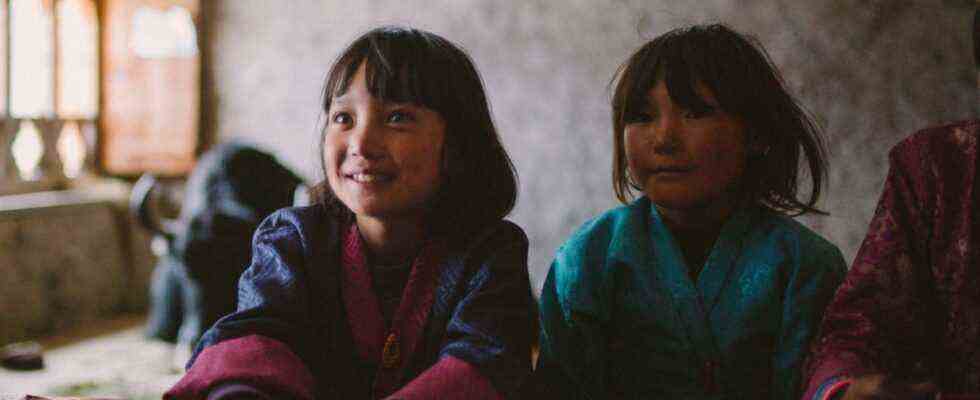The basic right to happiness is a serious matter in the small Kingdom of Bhutan. The government of the country, which is sandwiched between China and India in the Himalayas, determines the “gross national happiness” here every five years – and markets the country as the happiest place in the world.
For the young teacher Ugyen, the national index is just a slogan on his T-shirt. It says “Gross National Happiness”. His own happiness is in jeopardy, he steps in front of his boss with a misery mine. He was not made for the profession of teacher, his planned transfer to the remote Himalayas was not possible because of his fear of heights. The officer grunts at him in exasperation – he doesn’t have a height problem, but an attitude problem. Then she sends him to a mountain village for a year. Ugyen’s dream of a career as a singer in Australia has to wait.
The screenwriter and director Pawo Choyning Dorji is well aware that his debut “Lunana. Happiness in the Himalayas” tells the classic story of a conversion to frugality. But despite all the predictability, he manages to fill this story with amiable characters and wit. On the six-day walk to his new school, Ugyen sullenly trudges up the mountain pass to the village of Lunana and turns rudely away from his companions with loud music on his headphones. The yak herders, however, greet him with so much joy at his arrival that he almost looks like a stubborn child. They joke that as a guest of honor he even got toilet paper while they contented themselves with dry leaves.
Electricity is only available up here when the sun is shining
Dorji and his cameraman Jigme Tenzing stick to Ugyen’s perspective and avoid the clichés of majestic postcard motifs from the Himalayas. Looking at muddy mountain roads, rainy slopes and a pass covered in fog, Ugyen can hardly imagine staying here for a year. On top of that, at almost 5,000 meters above sea level, there is no cell phone reception and electricity only when the sun is shining. In order to fire the small stove in his hut, he has to regularly collect and dry yak dung, because wood or even paper are a luxury that the villagers can rarely afford.
Sure, Ugyen makes friends with the simple life, and when the battery of his iPod is finally empty, the singing of a yak shepherdess helps him not only over the musical doldrums, but also to reconnect with the traditions of the village. But behind this fairy tale of the simple life, which “Lunana” also tells, there is more than the Western transfiguration of the Digital detox, this longing for a detox from all the stimuli of digital modernity.
For director Dorji, Ugyen represents the young population of Bhutan, who asks what remains for them in an agricultural state that is torn between religious traditions and the digital future. Can a country that is in danger of being left behind internationally continue to call itself the happiest place in the world? Even without internet access, the village chief Asha sees this question more realistically than Ugyen expected. One of his seemingly esoteric mnemonics seems downright pragmatic. The children should be given the opportunity to become more than yak herders or healers, says Asha. As a teacher, Ugyen can help them by touching the future. Ugyen slowly dawns that this could mean his own future.
Lunana: A Yak In The Classroom, Bhutan 2019 – Written and directed by Pawo Choyning Dorji, camera: Jigme Tenzing. With: Sherab Dorji, Kelden Lhamo Gurung, Pem Zam. Kairos Film Distribution, 110 minutes. Film release: 01/13/2021

